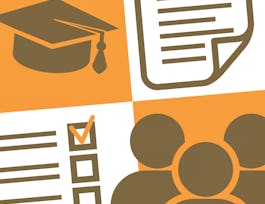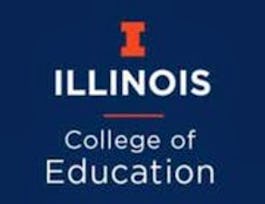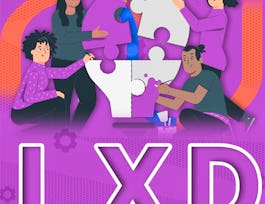For several decades now, assessment has become an increasingly pressing educational priority. Teacher and school accountability systems have come to be based on analysis of large-scale, standardized summative assessments. As a consequence, assessment now dominates most conversations about reform, particularly as a measure of teacher and school accountability for learner performance. Behind the often heated and at times ideologically gridlocked debate is a genuine challenge to address gaps in achievement between different demographically identifiable groups of students. There is an urgent need to lift whole communities and cohorts of students out of cycles of underachievement. For better or for worse, testing and public reporting of achievement is seen to be one of the few tools capable of clearly informing public policy makers and communities alike about how their resources are being used to expand the life opportunities for their children. This course is an overview of current debates about testing, and analyses the strengths and weaknesses of a variety of approaches to assessment. The course also focuses on the use of assessment technologies in learning. It will explore recent advances in computer adaptive and diagnostic testing, the use of natural language processing technologies in assessments, and embedded formative assessments in digital and online curricula. Other topics include the use of data mining, learning analytics and artificial intelligence in learning management systems and educational technology platforms. Participants will be required to consider issues of data access, privacy and the challenges raised by ‘big data’ including data persistency and student profiling.


Assessment for Learning
Taught in English
Some content may not be translated
16,079 already enrolled
(276 reviews)
Details to know

Add to your LinkedIn profile
1 quiz
See how employees at top companies are mastering in-demand skills


Earn a career certificate
Add this credential to your LinkedIn profile, resume, or CV
Share it on social media and in your performance review

There are 4 modules in this course
This course is an overview of current debates about testing, and analyses of the strengths and weaknesses of a variety of approaches to assessment. The module also focuses on the use of assessment technologies in learning. It will explore recent advances in computer adaptive and diagnostic testing, the use of natural language processing technologies in assessments, and embedded formative assessments in digital and online curricula. Other topics include the use of data mining and learning analytics in learning management systems and educational technology platforms. The module also considers issues of data access, privacy, and the challenges raised by ‘big data’ including data persistency and student profiling. A final section addresses the processes of educational evaluation. Video presenters include Mary Kalantzis, Bill Cope, Luc Paquette, and Jennifer Greene.
What's included
4 videos8 readings1 quiz1 peer review2 discussion prompts
The word "standard" is used in two quite different ways in testing theory and practice: to create a common measure of learning in "standardized assessments"; and the generalized and measurable objectives of learning. Sometimes standardized assessments are used to determine the outcomes of standards-based education, but often not. Standards-based assessment can also be criterion-referenced, and self-referenced.
What's included
5 videos2 readings2 peer reviews2 discussion prompts
Computer-mediated assessments can be used to mechanize, and so make more efficient, traditional select-and-supply response assessments. However, new opportunities also present themselves in the form of technologies and assessment processes called "learning analytics."
What's included
6 videos1 reading2 peer reviews2 discussion prompts
In this module, Luc Paquette discusses educational data mining – a new generation of techniques with which to analyze student learning for the purposes of assessment, evaluation, and research. Finally, Jennifer Greene explores theories and practices of evaluation. Assessment data may be used to support evaluations, however evaluation is a considerably broader process.
What's included
10 videos2 peer reviews2 discussion prompts
Instructors

Recommended if you're interested in Education

Erasmus University Rotterdam

University of Illinois at Urbana-Champaign

University of Michigan

University of Illinois at Urbana-Champaign
Why people choose Coursera for their career




Learner reviews
Showing 3 of 276
276 reviews
- 5 stars
81.94%
- 4 stars
11.91%
- 3 stars
2.88%
- 2 stars
1.08%
- 1 star
2.16%

Open new doors with Coursera Plus
Unlimited access to 7,000+ world-class courses, hands-on projects, and job-ready certificate programs - all included in your subscription
Advance your career with an online degree
Earn a degree from world-class universities - 100% online
Join over 3,400 global companies that choose Coursera for Business
Upskill your employees to excel in the digital economy
Frequently asked questions
Access to lectures and assignments depends on your type of enrollment. If you take a course in audit mode, you will be able to see most course materials for free. To access graded assignments and to earn a Certificate, you will need to purchase the Certificate experience, during or after your audit. If you don't see the audit option:
The course may not offer an audit option. You can try a Free Trial instead, or apply for Financial Aid.
The course may offer 'Full Course, No Certificate' instead. This option lets you see all course materials, submit required assessments, and get a final grade. This also means that you will not be able to purchase a Certificate experience.
When you purchase a Certificate you get access to all course materials, including graded assignments. Upon completing the course, your electronic Certificate will be added to your Accomplishments page - from there, you can print your Certificate or add it to your LinkedIn profile. If you only want to read and view the course content, you can audit the course for free.
You will be eligible for a full refund until two weeks after your payment date, or (for courses that have just launched) until two weeks after the first session of the course begins, whichever is later. You cannot receive a refund once you’ve earned a Course Certificate, even if you complete the course within the two-week refund period. See our full refund policy.



